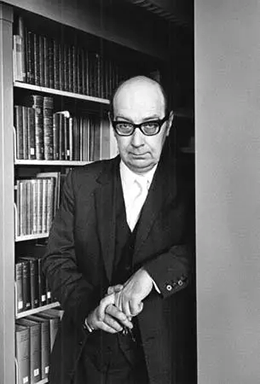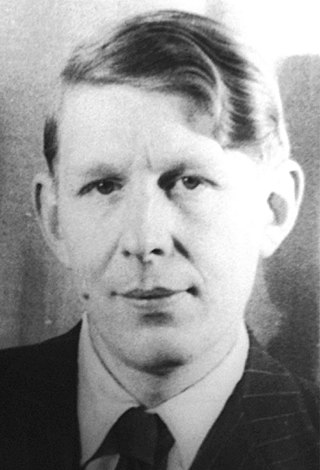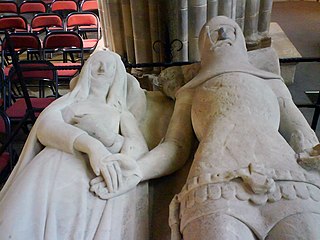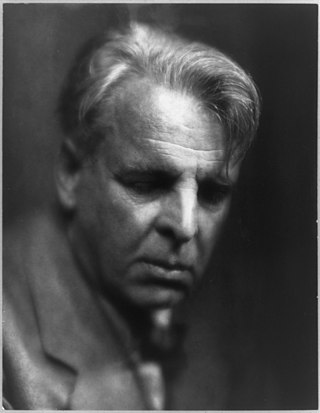Related Research Articles

Philip Arthur Larkin was an English poet, novelist, and librarian. His first book of poetry, The North Ship, was published in 1945, followed by two novels, Jill (1946) and A Girl in Winter (1947). He came to prominence in 1955 with the publication of his second collection of poems, The Less Deceived, followed by The Whitsun Weddings (1964) and High Windows (1974). He contributed to The Daily Telegraph as its jazz critic from 1961 to 1971, with his articles gathered in All What Jazz: A Record Diary 1961–71 (1985), and edited The Oxford Book of Twentieth Century English Verse (1973). His many honours include the Queen's Gold Medal for Poetry. He was offered, but declined, the position of Poet Laureate in 1984, following the death of Sir John Betjeman.

Philip Stanhope Worsley was an English poet.

Sir Andrew Motion is an English poet, novelist, and biographer, who was Poet Laureate from 1999 to 2009. During the period of his laureateship, Motion founded the Poetry Archive, an online resource of poems and audio recordings of poets reading their own work. In 2012, he became President of the Campaign to Protect Rural England, taking over from Bill Bryson.

The Platform Sutra of the Sixth Patriarch is a Chan Buddhist scripture that was composed in China during the 8th to 13th century. The "platform" (施法壇) refers to the podium on which a Buddhist teacher speaks. Its key themes are the direct perception of one's original nature, and the unity in essence of śīla (conduct), dhyāna (meditation) and prajñā (wisdom).
"This Be The Verse" is a lyric poem in three stanzas with an alternating rhyme scheme, by the English poet Philip Larkin (1922–1985). It was written around April 1971, was first published in the August 1971 issue of New Humanist, and appeared in the 1974 collection High Windows.

Brunette Coleman was a pseudonym used by the poet and writer Philip Larkin. In 1943, towards the end of his time as an undergraduate at St John's College, Oxford, he wrote several works of fiction, verse and critical commentary under that name, including homoerotic stories that parody the style of popular writers of contemporary girls' school fiction.
Anthony Simon Thwaite OBE was an English poet and critic, widely known as the editor of his friend Philip Larkin's collected poems and letters.

The Whitsun Weddings is a collection of 32 poems by Philip Larkin. It was first published by Faber in the United Kingdom on 28 February 1964. It was a commercial success, by the standards of poetry publication, with the first 4,000 copies being sold within two months. A United States edition appeared some seven months later.

"September 1, 1939" is a poem by W. H. Auden written shortly after the German invasion of Poland, which would mark the start of World War II. It was first published in The New Republic issue of 18 October 1939, and in book form in Auden's collection Another Time (1940).

Jill is a novel by English writer Philip Larkin, first published in 1946 by The Fortune Press, and reprinted by Faber and Faber (London) in 1964. It was written between 1943 and 1944, when Larkin was twenty-one years old and an undergraduate at St John's College, Oxford.

The Less Deceived, first published in 1955, was Philip Larkin's first mature collection of poetry, having been preceded by the derivative North Ship (1945) from The Fortune Press and a privately printed collection, a small pamphlet titled XX Poems, which Larkin mailed to literary critics and authors. Larkin was unaware that postal rates had gone up, and most recipients, when asked to pay the difference for delivery of a pamphlet by a little-known writer, turned them away; only around 100 copies were printed.
"MCMXIV" (1914) is a poem written by English poet Philip Larkin. It was first published in the book The Whitsun Weddings in 1964. The poem, a single sentence spread over four stanzas, begins by describing what is seemingly a photograph of volunteers lining up to enlist, and goes on to reflect on the momentous changes in England that would result from the First World War, ending, 'Never such innocence again'.
"The Whitsun Weddings" is one of the best known poems by British poet Philip Larkin. It was written and rewritten and finally published in the 1964 collection of poems, also called The Whitsun Weddings. It is one of three poems that Larkin wrote about train journeys.

"An Arundel Tomb" is a poem by Philip Larkin, written and published in 1956, and subsequently included in his 1964 collection The Whitsun Weddings. It describes the poet's response to seeing a pair of recumbent medieval tomb effigies with their hands joined in Chichester Cathedral. It is described by James Booth as "one of [Larkin's] greatest poems". It comprises 7 verses of 6 lines each, each with rhyme scheme ABBCAC.
"Anecdote for Fathers" is a poem by William Wordsworth first published in his 1798 collection titled Lyrical Ballads, which was co-authored by Samuel Taylor Coleridge. A later version of the poem from 1845 contains a Latin epigraph from Praeparatio evangelica: "Retine vim istam, falsa enim dicam, si coges," which translates as "Restrain that force, for I will tell lies if you compel me."

Blood and the Moon is a poem by Irish poet William Butler Yeats written in 1927. It was first published in the Spring 1928 issue of The Exile and then in the collection The Winding Stair in 1929, before being reprinted in The Winding Stair and Other Poems in 1933. Yeats composed the poem in response to the 1927 assassination of Kevin O'Higgins, the Vice-President of the Free State, whom Yeats had known personally. The poem contains many themes common in Yeats's poems from the 1920s including the "tower", a reference to Thoor Ballylee, which had been the title of a collection of works printed the year before "Blood and the Moon" was published, as well as the "gyre" which had been a major focus of his 1920 poem "The Second Coming".
Throughout the life of the poet Philip Larkin, multiple women had important roles which were significant influences on his poetry. Since Larkin's death in 1985, biographers have highlighted the importance of female relationships on Larkin: when Andrew Motion's biography was serialised in The Independent in 1993, the second installment of extracts was dedicated to the topic. In 1999, Ben Brown's play Larkin with Women dramatised Larkin's relationships with three of his lovers, and more recently writers such as Martin Amis, continued to comment on this subject.
"Church Going" is a poem by the English poet Philip Larkin (1922–1985) that is generally regarded as one of his masterpieces. Larkin's first draft of the poem was dated 24 April 1954. He worked through 21 pages of drafts, abandoned it, then took it back up, emerging with his final version in July 1954. "Church Going" was published in The Less Deceived. Larkin's fondness for English ecclesiastical architecture, and the seriousness of mood he felt in such places, are apparent in the poem, standing in contrast to his cynicism about Christianity. "Church Going" is notable for its reference to the "cycle-clips" often associated in the popular imagination with Larkin during his lifetime.
"Aubade" is a poem by the English poet Philip Larkin, first published in 1977. The theme of the poem is the terror of death. The title refers to the poetic genre of aubade, poems written about the early morning.
References
- ↑ Mason, David. "Book Review: The Complete Poems of Philip Larkin". WSJ. Retrieved 5 April 2024.
- ↑ Larkin, Philip (2004). Thwaite, Anthony (ed.). Collected Poems . Farrar, Straus and Giroux. p. 81. ISBN 9780374529208.